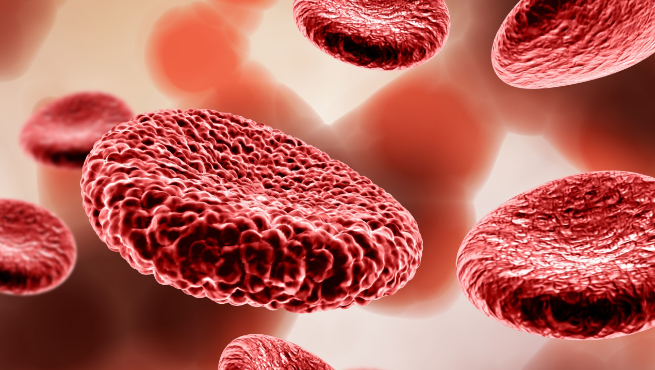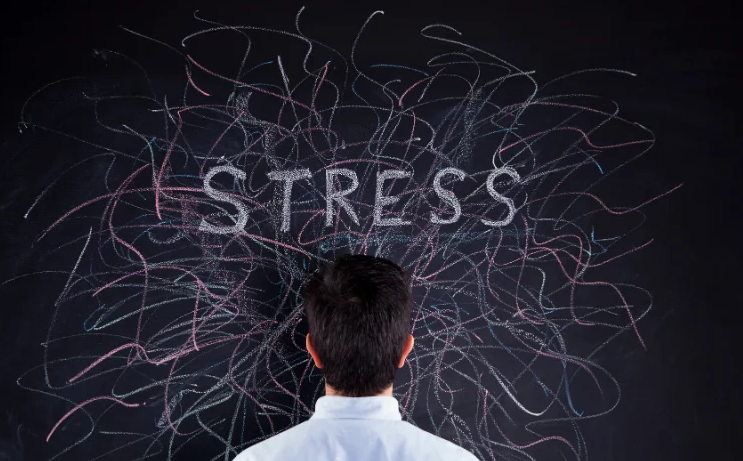Stress. It’s a familiar nemesis in our modern world, a ubiquitous phenomenon that creeps into our lives, wreaking havoc on our physical and mental health. One connection that’s less widely discussed is the relationship between stress and anemia. You may be asking yourself, “Can anemia be caused by stress?” The answer isn’t as straightforward as one might hope, but the exploration of this connection is undoubtedly illuminating and promising.
Anemia: A Brief Overview

Anemia is a condition characterized by a deficiency of red blood cells or hemoglobin, a protein in these cells responsible for carrying oxygen throughout the body. Iron deficiency anemia, the most common type, is often linked to diet and nutrient absorption. However, emerging evidence suggests that the intricate web of stress and anemia might be more entangled than previously recognized.
Stress and Its Multifaceted Impacts

Emotional and psychological stress can profoundly impact our bodies in numerous ways. The physiological response to stress is well-documented, involving a cascade of hormonal changes designed to help the body cope with perceived threats or challenges.
Exploring the Correlation Between Stress and Anemia
The intersection of anemia and stress is a burgeoning field of study. Researchers are intrigued by the potential link between chronic stress and changes in red blood cell production or iron metabolism. While it’s essential to underline that stress doesn’t directly cause anemia, the stress response’s physiological changes could potentially contribute to conditions leading to anemia, such as malnutrition or inflammation.
Stress-Induced Iron Deficiency: An Emerging Concept
Iron deficiency anemia is primarily caused by inadequate dietary intake, malabsorption, or blood loss. Recent research indicates that chronic stress might indirectly lead to iron deficiency. Long-term stress can alter eating habits and affect gut health, both critical for maintaining sufficient iron levels.
Emotional Stress and Anemia: The Inflammation Connection
Stress can trigger an inflammatory response in the body, a process linked to various health conditions, including anemia. Chronic inflammation can affect the production and lifespan of red blood cells and inhibit iron absorption, all of which may contribute to anemia.
Psychological Stress and Blood Cell Count
Chronic psychological stress can affect the bone marrow’s ability to produce red blood cells, potentially leading to anemia. However, more research is needed to fully understand this relationship and its clinical implications.
Dealing with Stress-Related Anemia: A Comprehensive Approach

Recognizing the potential link between stress and anemia highlights the importance of a comprehensive approach to diagnosis and treatment. Addressing dietary issues, improving gut health, managing stress levels, and treating any underlying inflammation may all play vital roles in alleviating anemia symptoms.
The Underlying Mechanism: Stress and Its Effect on Hemoglobin
As the primary transporter of oxygen in our body, hemoglobin’s role cannot be overstated. It’s a critical component of red blood cells, binding oxygen in the lungs and releasing it to the tissues as required. Low levels of hemoglobin, common in anemia, means the body’s tissues and organs don’t get the oxygen they need, leading to fatigue, weakness, and other anemia symptoms.
Chronic stress can cause significant disturbances in various body systems, including the circulatory system. While it doesn’t directly lower hemoglobin levels, chronic stress may indirectly impact them. For example, prolonged stress can lead to sleep disturbances, which can negatively affect erythropoiesis, the process of red blood cell production. Additionally, the inflammatory response often seen in chronic stress may disrupt iron metabolism, leading to conditions conducive to anemia.
Anemia and the Stress of Modern Life
Modern life brings its own unique set of stressors – be it work pressure, financial instability, or social media-induced anxiety. An ongoing state of stress can manifest in numerous physical symptoms, including those associated with anemia.
Understanding this, healthcare providers are increasingly recognizing the need for a holistic view of patient health, acknowledging that psychological stress can have substantial effects on physical health. An individual suffering from chronic stress may experience alterations in their diet or disruptions in their sleep, which could potentially contribute to anemia.
Stress Management: An Integral Part of Anemia Treatment

Given the potential link between chronic stress and anemia, stress management techniques are becoming an integral part of comprehensive treatment plans for patients suffering from anemia. Techniques such as mindfulness meditation, yoga, and cognitive-behavioral therapy can all help individuals manage their stress levels, which could indirectly improve anemia symptoms.
Additionally, healthcare providers are encouraging patients to focus on maintaining a balanced diet rich in iron, vitamin B12, and folic acid, along with adequate hydration and regular exercise. These lifestyle adjustments, coupled with stress management, can help to bolster the body’s resilience against anemia.
Further Research on the Link Between Stress and Anemia
While the potential link between stress and anemia is increasingly recognized, there’s a considerable scope for further research in this area. More extensive and in-depth studies are needed to fully understand the physiological mechanisms involved and establish a definitive link between chronic stress and anemia.
Such research can lead to better diagnostic strategies, more effective treatment approaches, and improved patient outcomes. It also highlights the significance of a holistic approach to health, further emphasizing the interconnectedness of psychological and physical health.
FAQs About Can Anemia Be Caused By Stress?
What are the symptoms of stress-induced anemia?
Anemia symptoms include fatigue, weakness, pale skin, shortness of breath, and irregular heartbeat. Chronic stress symptoms might include frequent headaches, trouble sleeping, and changes in appetite. If these symptoms persist, consult a healthcare provider.
Can emotional stress lead to iron deficiency anemia?
Emotional stress could indirectly contribute to iron deficiency by affecting eating habits and gut health, both of which are essential for maintaining optimal iron levels.
How does stress affect red blood cell production?
Chronic stress may impact the bone marrow’s ability to produce red blood cells, potentially leading to anemia. More research is needed to establish this connection definitively.
Is there a link between stress and low hemoglobin levels?
Stress may indirectly contribute to lower hemoglobin levels by promoting inflammation, altering dietary habits, or affecting gut health, all potentially leading to anemia.
Can chronic stress cause anemia?
While chronic stress doesn’t directly cause anemia, it could contribute to conditions that lead to anemia, such as inflammation, malnutrition, or altered red blood cell production.
Can managing stress levels help improve anemia symptoms?
Stress management can improve overall health and wellbeing, which could indirectly alleviate anemia symptoms by promoting a healthier lifestyle, better nutrition, and inflammation reduction.
Also Read: How to Combine Tile and Wood Flooring? [Wording Ideas] 2023
Conclusion: Embracing a Holistic Approach to Health
While we can’t definitively say that stress causes anemia, the existing research highlights the complex interplay between psychological stress and physical health. This understanding about “Can Anemia Be Caused By Stress?” has profound implications for how we diagnose and treat conditions like anemia.
Moving forward, it’s evident that a comprehensive, patient-centered approach to health is the best way forward. This includes not only focusing on physical symptoms and treatments but also addressing the significant role of mental health in overall well-being. As we continue to unravel the complexities of human health, the potential connection between stress and anemia serves as a crucial reminder of the holistic nature of health and well-being.





